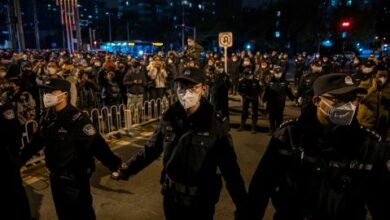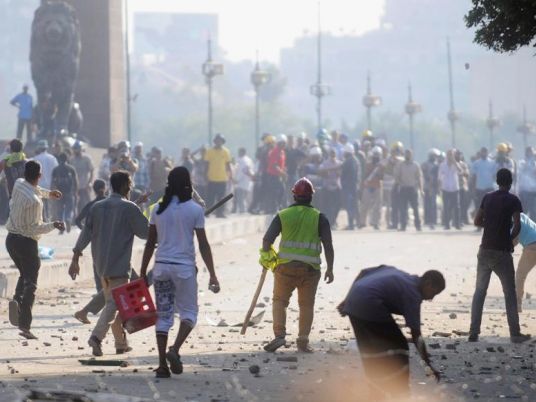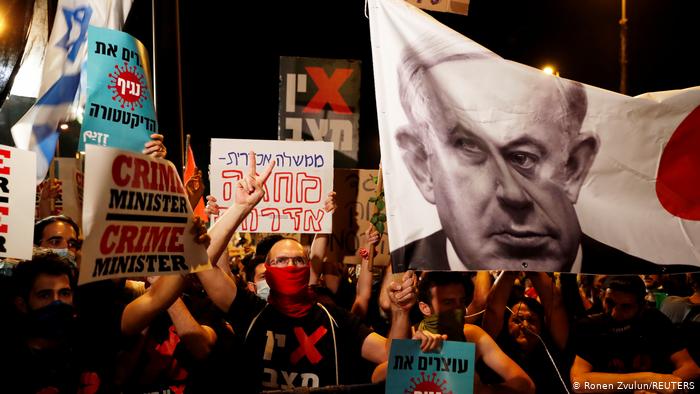Roughly two hundred kufeya-clad activists, passionately waving Palestinian flags and carrying signs bearing anti-Israeli slogans alongside portraits of late Egyptian President Gamal Abdel Nasser, demonstrated outside the Egyptian Journalists Syndicate’s headquarters in downtown Cairo on Saturday to mark their opposition to the Camp David Peace Treaty, signed by Egypt and Israel exactly 31 years earlier.
The protest, organized by the syndicate’s Arab Committee, brought together activists from pro-Palestinian movements, anti-Camp David campaigns and groups opposed to "normalizing" the Egypt-Israel relationship. Protesters called for the annulment of the 1978 treaty and the severance of all ties between the two neighbors.
"Down with Mubarak!" they shouted angrily, as a couple dozen internal security police looked on. Several young demonstrators stomped on a hand-drawn Israeli flag before setting it ablaze.
"Camp David destroyed Egypt," said protest organizer Mohamed Waked of the Center for Socialist Studies, one of several groups to endorse the demonstration. "Egypt has been colonized and in a state of slavery since the peace treaty was signed. We don’t have sovereignty over half of the Sinai Penisula," he added.
Waked went on to say the contentious peace deal had been "politically disastrous" for Egypt, describing it as a "one-sided" agreement by which Egypt ultimately forfeited its national sovereignty.
Abdel Aziz el-Husseini, coordinator for the popular Egyptian Committee for Boycotting Israel, agreed that the treaty had amounted to political suicide for Egypt.
"Ever since Camp David, the US has interfered in and controlled all aspects of Egyptian life," he said. "The US is making all political decisions for Egypt–not just in terms of foreign policy, but even in terms of domestic issues."
The Camp David Treaty led to the Egypt-Israel Peace Treaty one year later, which made Egypt the first Arab state to recognize and make peace with Israel. Egypt was joined by Jordan 15 years later, when the Hashemite kingdom signed its own peace deal with Israel in 1994.
Some Arab countries, such as Morocco and Qatar, both maintain limited relationships with the self-proclaimed Jewish state. Notably, on 20 March, Mauritania’s foreign minister announced that the Islamic nation was completely and definitively severing all diplomatic relations with Tel Aviv.
According to Waked, the state of peace enjoyed by Egypt since the signing of the accords has come at the expense of national integrity. "This treaty served to rob us of our dignity," he said. "What did we get in return? A question mark. Egyptians aren’t dying, but they’re not living in dignity."
After Israel, Egypt represents the second largest recipient of US foreign aid, having received roughly $13 billion in military grants between 1995 and 2005. These funds, critics argue, which were entirely conditional on Egypt never using its weaponry against Israel, served to cement an otherwise unfavorable agreement.
Waked noted that the vast majority of participants in Saturday’s protest were Egyptian, with most Palestinians staying away from the event for fear of being deported by authorities.




